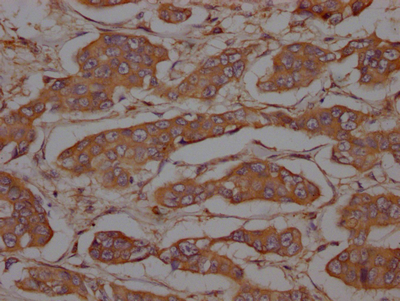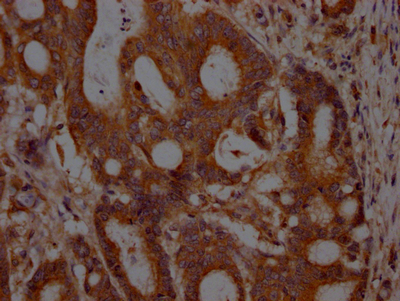Generating the MET recombinant monoclonal antibody is a multi-step process that demands precision and accuracy. First, the MET monoclonal antibody is harvested and its gene sequence is determined. A vector carrying the MET monoclonal antibody gene is then designed and transfected into a host cell line for culturing. A synthesized peptide from human MET serves as the immunogen during the MET monoclonal antibody synthesis. The MET recombinant monoclonal antibody is then purified by using affinity chromatography to remove any impurities and ensure high specificity. The specificity of the MET recombinant monoclonal antibody is then verified through ELISA and IHC assays.
Proto-oncogene Met, also known as HGFR, is a receptor tyrosine kinase that plays a critical role in regulating cell growth, survival, and motility. Met also plays a role in regulating cell motility and invasion by activating signaling pathways that promote cell migration and invasion. This function is important in embryonic development and wound healing, but can also contribute to cancer metastasis. Met is involved in tissue development by regulating cell migration, proliferation, and differentiation during embryonic development. It is frequently overexpressed or mutated in various types of cancer, including lung cancer, gastric cancer, and liver cancer. Met activation can promote tumor growth, metastasis, and resistance to chemotherapy.







